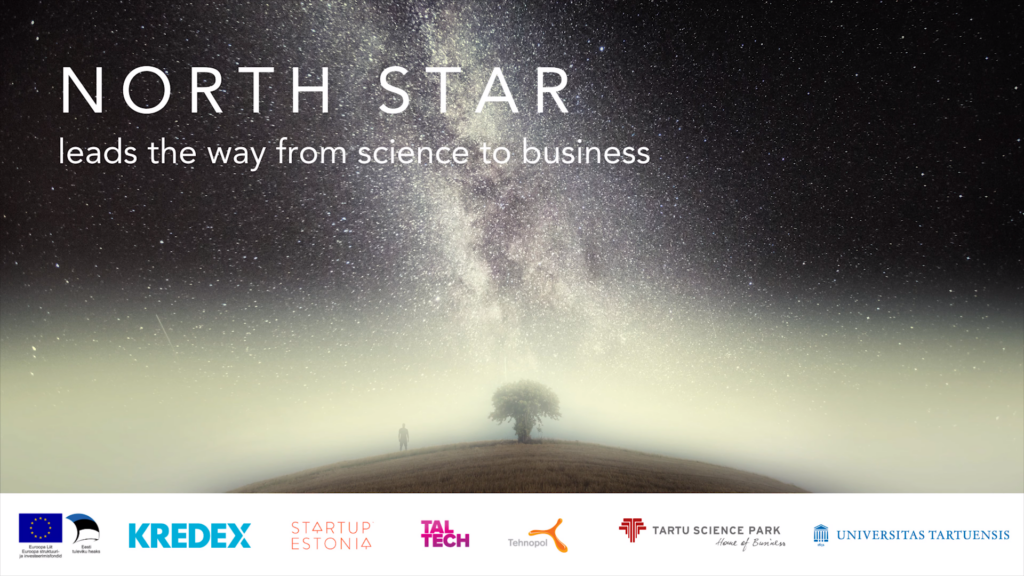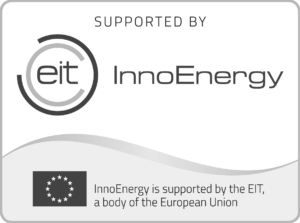27.09.2021
North Star: Cooperation leads to the emergence of a science-based unicorn

Almost every year in Estonia, there is reason to rejoice that records were once again set both in terms of taxes paid by the startup sector and the investments involved. We are number one in Europe in terms of the ratio of unicorns to population, but if we delve a little deeper into the startup sector, it turns out that most Estonian startups are software-based and no Estonian science-based startups have exceeded the magical billion mark.
ESTONIA’S SCIENCE-BASED ENTERPRISE ECOSYSTEM
The funding model of Estonian universities perfectly supports the development of basic science; Estonian universities are among the world’s top universities. At the same time, the science-based companies that have reached the market so far have been largely initiated by universities and researchers, and it has often taken decades to succeed. There is no public order for the commercialization of knowledge and the so-called ‘seamless value chain’ that supports the development of the business competence of teams with a high level of technological innovation to grow a science-based company from a research team.
Sten Tamkivi, the founder of several startup companies, recently said at the largest business festival in the Baltics, sTARTUp Day, that one of the next unicorns may come from science-based companies, and angel investor Heidi Kakko is of the same opinion. Although investors estimate that deep tech is one of the areas with the greatest potential in Estonia, it has proved to be too capital-intensive and the return period of the investment is also significantly longer than usual.
It is often difficult for companies operating in science-based fields to grow rapidly, because when a startup company operates outside the ICT sector, there is no knowledge of the respective technology or sector in the startup ecosystem (support organizations, mentors, investors).
In the spring of 2020, Tehnopol, Tartu Science Park, TalTech, and the University of Tartu decided to start systematic and all-Estonian cooperation in accelerating the business of science-based teams, with the aim of helping university research teams reach 1-2 technological readiness levels. The aim of the pilot program “North Star” was to validate the previously presented hypotheses and offer possible solutions. The project tested approaches that have not previously been used in Estonia to develop science-based teams in this format. Last but not least, this is the first model of cooperation in which, with the contribution of four organizations, a so-called ‘seamless value chain’ was created to accelerate the development of science-based teams.
WITH A SENSE OF MISSION, INNOVATORS CREATE THE MOST SUITABLE MODEL FOR ESTONIA
Andrus Kurvits, a member of the board of Tartu Science Park, said the need for a seamless co-operation model covering the whole of Estonia is explained by the slowness of the existing processes and the lack of government funding. “It takes many years longer for a research-intensive company to enter the market than for traditional and IT companies, and it requires broad-based cooperation and support from the community. The City of Tartu and the University together with other founders have comprehensively supported Estonia’s only incubation program for deep tech companies, S2B Launchpad, so that we can systematically support the development of research teams formed from the University of Tartu. By putting our backs together with the University of Technology and Tehnopol, we created new synergies to create breakthrough innovations and support their business development,” Kurvits said, highlighting the role of science parks as a bridge between different parties – researchers, companies, investors, and customers.
Kadri Tammai, the head of Tehnopol’s Startup Incubator, said that Estonia’s science-based ecosystem is clearly still in its infancy in terms of entrepreneurship. “We are around the place where the whole startup ecosystem as a whole was about 10 years ago – so there is a lot of room for development. We do cutting-edge science, but many research projects never reach the products or services they bring to market, and we clearly need to make a big leap forward.
“In addition, the issue of financing early-stage teams needs to be strongly addressed, as the local investment community has historically been more focused on software companies, and foreign investment in the very early stages is rather rare,” Tammai continued.
NORTH STAR: 4 TEAMS, 14 MENTORS, 3 DEVELOPMENT SPRITS AND 84 MENTOR MEETINGS
“The University of Tartu has set itself the goal of actively contributing to increasing the added value of the Estonian economy. We see that knowledge-intensive companies are the ones that can contribute to it most effectively,” commented Erik Puura, Vice-Rector for Development of the UT Mission. “Unfortunately, universities alone cannot support all development cycles of knowledge-intensive companies, therefore we highly value the support of science parks,” emphasized Puura, commenting on the value of the initiative.
The program included two teams that had not previously received systemic business development services and two teams that had previously participated in the incubation program. In total, four knowledge-intensive teams with growth potential were involved in the project: KappaZeta OÜ, Unsinkable Robotics OÜ, PlantInvent OÜ, and DC / AC.
- The solution developed by PlantInvent enables the optimization of water consumption in crop production and a faster and more flexible response to climate change in plant breeding.
- The idea of DC-DC / AC is to create a universal power electronics converter that is suitable for both DC and AC devices at the same time.
- Unsinkable Robotics offers an all-in-one robotic platform for underwater mapping and monitoring.
- Using remote sensing data, KappaZeta helps to monitor large agricultural parcels more accurately and more frequently, thus saving farms time and money.
During the program, both development prints and numerous mentoring meetings took place. According to the participating teams, the greatest value was in involving top mentors, who were able to move them commercially to a new level and to do things that had not been done before due to a lack of knowledge within the team. The legal advice and marketing and sales support provided by the program were particularly valued.
The teams pointed out one shortcoming: that hardware companies also need to use workshops or maker space, and conventional office space is certainly not suitable for this. In addition, it was noted that there is no good overview of the opportunities offered by universities to use laboratories and the necessary equipment. Cooperation and help in writing various grant projects are also expected, as the teams themselves do not have the ability to map, select, and implement suitable opportunities.
The North Star mentors pointed out that working with science-based teams is different in many respects compared to the average startup. More attention is paid to increasing business competence and assessing market readiness, which means that the mentor must be well acquainted with the field in which the team develops its product or service.
They considered it necessary for similar teams to have the opportunity to communicate and share experiences. Help comes from the team that is one step ahead of the others, not ten steps ahead.
Sven Illing, Vice-Rector for Entrepreneurship of Tallinn University of Technology, pointed out that the teams of the two largest universities and two leading science parks achieved joint activities, which serve as the cornerstone of the emergence of a knowledge-intensive business community. “The North Star program also led us to think that we need to offer TalTech researchers an accelerator-like program, i.e. startup training, support from international mentors, networking with various partners, and, of course, investors,” Illing added.
CHALLENGE AND OPPORTUNITIES
The startup ecosystem is the creator and developer of innovation and the initiator of high-impact changes and projects in society, enabling science and technology-intensive entrepreneurship, rapid growth of the field, and ambitious solutions and investments in Estonia. Although Estonian startups have attracted more and more risk investments year after year and access to risk capital investments has significantly improved in Estonia, there is still a strong risk of market failure for science and technology intensive and scalable startups, which require not only flexible and long-term policies but also ecosystem development and technology support to be successful.
A science-based business ecosystem can be created and developed through public-private partnerships. Universities and science parks do deal with the issue, but there is a lack of both capital and best practice for systematic development, which is suitable for Estonian conditions. What is needed is a logical and well-thought-out value chain through which knowledge-intensive teams can move.
Tartu Science Park, Tehnopol Science and Business Park, Tallinn University of Technology, and the University of Tartu launched the “North Star” program to support the transformation of science-based technologies into businesses. The aim of the pilot program was to test an innovative method, create a collaborative model, and later share experiences with the community.
The North Star (EST: Põhjanael) program is supported by the European Regional Development Fund within the framework of the public procurement “Development of the Estonian Emerging Business Ecosystem and Development Programs for Emerging Entrepreneurs 2020” (project number EU50651).
A summary video and a white paper (in Estonian) were prepared for the project, where you can get to know the hypotheses, results and feedback of the program in more detail.












